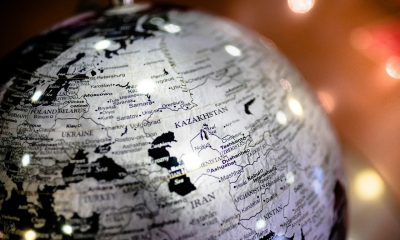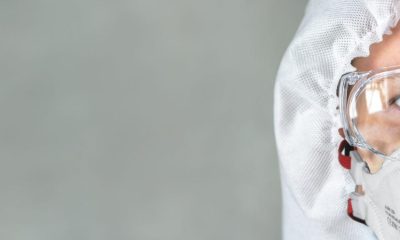Kanker
Lewering van gehalte # kanker sorg: Hoe kan ons dit beter doen?
DEEL:

 Health-care professionals, patients, policy-makers and other experts gathered in the European Parliament earlier this week to shine a light on how the needs of quality cancer care can be met across Europe.
Health-care professionals, patients, policy-makers and other experts gathered in the European Parliament earlier this week to shine a light on how the needs of quality cancer care can be met across Europe.
Taking as its starting point the ECCO Essential Requirements for Quality Cancer Care, the discussion focused on:
- Core elements of quality cancer care, including patient access to a multidisciplinary team of healthcare professionals;
- other patient perspectives on what constitutes quality cancer care;
- tools to measure quality cancer care, and;
- European approaches toward achieving quality cancer care.
President of the European CanCer Organization (ECCO) Philip Poortmans said: “All of us want to see the achievement of high-quality cancer care for all patients. However, to reach that goal, we need to know what quality cancer care exactly entitles to, what its components are, and how to assess whether we have achieved our goals. That is where the ECCO Essential Requirements for Quality Cancer Care come in. These are statements of consensus between healthcare professionals and patients on the organisational specifications required for any healthcare system to provide high-quality care throughout the entire patient journey. ECCO is heavily engaged in the leadership task of turning that consensus into reality. For that reason, it was exciting to bring so many experts together today to jointly discuss and develop the roadmap to successful implementation.”
Chair of ECCO’s Patient Advisory Committee (PAC) Ian Banks said: “One of the mantras that we have at ECCO is to value what matters most to patients. The ECCO Essential Requirements for Quality Cancer Care are applicable in any country, hospital or health care system within the EU. They are a result of discussion between healthcare professionals (HCPs) and patient advocates to ensure that good practice is available to all patients not just those in the richer countries. Unlike guidelines, which can often be ‘aspirational’, essential requirements demand action from hospital administrators, HCPs and policy makers in every country.”
Director of the European Cancer Leagues (ECL) Wendy Yared said: “Our objective is to improve patient outcomes and experience, but so much remains to be done to ensure equal access to quality cancer care throughout the patient journey. At ECL, we work together with national cancer societies to improve quality of cancer care while focusing on the gaps in communication between healthcare professionals, patients and informal caregivers. We are delighted to join forces with ECCO and highlight this crucial topic at the European Parliament today.”
The meeting was held in the context of Quality Cancer Care Week 2018. It was organised by the European CanCer Organisation (ECCO) and European Cancer Leagues (ECL) in conjunction with the MEPs Against Cancer (MAC) group. ECCO and ECL extend their gratitude to Deirdre Clune MEP (EPP, IE) for hosting and chairing the meeting.
- The European CanCer Organisation (ECCO) is a not-for-profit federation that exists to uphold the right of all European cancer patients to the best possible treatment and care, promoting interaction between all organizations involved in cancer at European level. Through its 23 member societies - representing over 150,000 professionals - ECCO is the only multidisciplinary organisation that connects and responds to all stakeholders in oncology Europe-wide. It does this by creating awareness of patients’ needs and wishes, encouraging progressive thinking in cancer policy, training and education and promoting European cancer research, prevention, diagnosis, treatment and quality care through the organization of international multidisciplinary meetings. www.ecco-org.eu
- The Association of European Cancer Leagues (ECL) is a non-profit, pan-European umbrella organisation of national and regional cancer societies. Located in Brussels, ECL provides an exclusive platform for members to collaborate with their international peers, primarily in the areas of cancer prevention, tobacco control, access to medicines and patient support, and creates opportunities to advocate for these issues at the EU level. www.europeancancerleagues.org
- The MEPs Against Cancer Group (MAC) was founded in 2005 and remains the only dedicated group to cancer policy at the European Parliament. Currently, there are 34 MAC members coming from all political groups and the different EU Member States. The President Mr. Alojz Peterle (EPP, Slovenia), Vice-Presidents Ms. Nessa Childers (S&D, Ireland), Mr. Pavel Poc (S&D, Czech Republic), and Dr. Charles Tannock (ECR, United Kingdom), and other members are committed to taking action in the fight against cancer. www.mepsagainstcancer.eu
- Deirdre Clune is an Irish politician who has served as a Member of the European Parliament (MEP) for Ireland South since 2014. She is a member of Fine Gael, part of the European People's Party. http://deirdreclune.ie/
- The Essential Requirements for Quality Cancer Care (ERQCC) papers are organizational specifications, not clinical guidelines, and are intended to give oncology teams, patients, policymakers, and managers an overview of the elements needed in any healthcare system to provide high-quality care throughout the patient journey. References are made to clinical guidelines and other resources where appropriate, and the focus is on care in Europe. www.ecco-org.eu/ERQCC
- Quality Cancer Care Week 2018 runs from 5-11 Maart and constitutes a week of awareness-raising and debate stimulation on the topic of quality cancer care: what quality cancer care consists of; how to measure it; and how to implement it. www.ecco-org.eu/qccw
- ECCO will continue its focus on quality cancer care as its primary policy priority, featuring an important resolution forming session on the topic at the ECCO 2018 European Cancer Summit, 7-9 September in Vienna. All interested stakeholders are invited to attend and participate. More information here: www.eccosummit.eu
Deel hierdie artikel:
-

 Konflikte3 dae gelede
Konflikte3 dae geledeKasakstan tree in: Oorbrug die skeiding tussen Armenië en Azerbeidjan
-

 uitbreiding4 dae gelede
uitbreiding4 dae geledeEU onthou die optimisme van 20 jaar gelede, toe 10 lande aangesluit het
-

 Wet op digitale dienste4 dae gelede
Wet op digitale dienste4 dae geledeKommissie beweeg teen Meta oor moontlike oortredings van die Wet op Digitale Dienste
-

 Covid-193 dae gelede
Covid-193 dae geledeGevorderde beskerming teen biologiese middels: die Italiaanse sukses van ARES BBM - Bio Barrier Mask



























